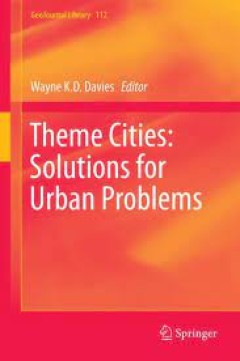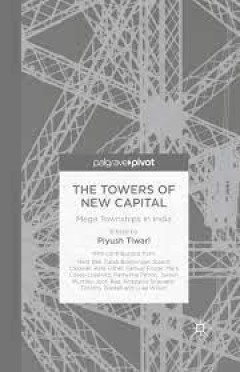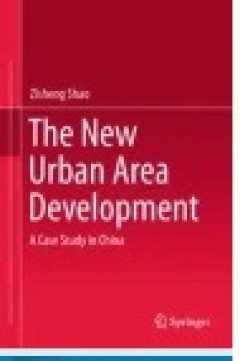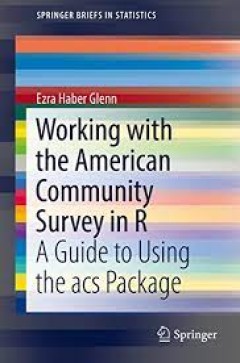Filter by

The Grid and the Park Public Space and Urban Culture in Buenos Aires, 1887â€â€¦
Since its publication in Spanish in 1998, The Grid and the Park not only revitalized studies on the history of Buenos Aires, but also laid the foundation for a specific type of cultural work on the city —an urban perspective for cultural history, as its author would describe it— that has had a sustained impact in Latin America. Public space, embodied in the grid of city blocks and the park …
- Edition
- -
- ISBN/ISSN
- 9781951634216
- Collation
- -
- Series Title
- -
- Call Number
- -

European Planning History in the 20th Century A Continent of Urban Planning
The history of Europe in the 20th century is closely tied to the history of urban planning. Social and economic progress but also the brute treatment of people and nature throughout Europe were possible due to the use of urban planning and the other levels of spatial planning. Thereby, planning has constituted itself in Europe as an international subject. Since its emergence, through intense ex…
- Edition
- -
- ISBN/ISSN
- 9781003271666
- Collation
- -
- Series Title
- -
- Call Number
- -

Towards Cognitive Cities Advances in Cognitive Computing and its Application…
This book introduces the readers to the new concept of cognitive cities. It demonstrates why cities need to become cognitive and why therefore a concept of cognitive city is needed. It highlights the main building blocks of cognitive cities and illustrates the concept by various cases. Following a concise introductory chapter the book features nine chapters illustrating various aspects and dime…
- Edition
- -
- ISBN/ISSN
- 978-3-319-33798-2
- Collation
- -
- Series Title
- -
- Call Number
- -

Impacts of Land-use Change on Ecosystem Services
This book aims to systematically elaborate how land-use change directly or indirectly exerts impacts on the ability of ecosystems to provide services for human society. The relationship between land use, ecosystem services and human well-being is a hot topic, and there have been some important achievements in this field, but its continuing growth means that it warrants further research. The …
- Edition
- -
- ISBN/ISSN
- 978-3-662-48007-6
- Collation
- IX, 260
- Series Title
- -
- Call Number
- 304 IMP

Tohoku Recovery Challenges, Potentials and Future
The March 11 disaster in 2011, known as the Great East Japan Earthquake and Tsunami, caused extensive damage in various sectors. Through the recovery process, special lessons are being learned and applied in the affected region. This book attempts to draw lessons from different issues and sectors such as policy perspectives (both national and local), the role of international NGOs, fishing indu…
- Edition
- -
- ISBN/ISSN
- 978-4-431-55136-2
- Collation
- -
- Series Title
- -
- Call Number
- -

Theme Cities: Solutions for Urban Problems
This book reviews a series of new urban ideas or themes designed to help make cities more liveable, sustainable, safe and inclusive. Featuring examples drawn from cities all over the world, the various chapters provide critical assessments of each of the various approaches and their potential to improve urban life. New Urbanism: creating new areas based on a more humane scale with neighbourh…
- Edition
- -
- ISBN/ISSN
- 978-94-017-9655-2
- Collation
- -
- Series Title
- -
- Call Number
- -

The Towers of New Capital Mega Townships in India
With mega townships as the tool, this book analyses the complexity, scale and the challenges associated with the development paradigm in India from various built environment lenses. The Towers of New Capital is an enquiry into how these 'global fixes' are leading to territorial reorganization.
- Edition
- -
- ISBN/ISSN
- 978-1-137-58626-1
- Collation
- -
- Series Title
- -
- Call Number
- -

Governance for Justice and Environmental Sustainability Lessons across Natur…
Understanding the governance of complex social-ecological systems is vital in a world faced with rapid environmental change, conflicts over dwindling natural resources, stark disparities between rich and poor and the crises of sustainability. Improved understanding is also essential to promote governance approaches that are underpinned by justice and equity principles and that aim to reduce ine…
- Edition
- -
- ISBN/ISSN
- 9780203120880
- Collation
- -
- Series Title
- -
- Call Number
- -

The New Urban Area Development: A Case Study in China
​This book examines the formation trajectory and development path of China’s newly formed urban areas, which was the result of an unprecedented massive urbanization process. The analysis is based on the case of Dezhou, Shandong Province. This book systematically introduces strategic studies, planning and design, development and construction, investments, policies and future development of n…
- Edition
- -
- ISBN/ISSN
- 978-3-662-44958-5
- Collation
- XXXV, 417
- Series Title
- -
- Call Number
- -

Working with the American Community Survey in R A Guide to Using the acs Pac…
This book serves as a hands-on guide to the "acs" R package for demographers, planners, and other researchers who work with American Community Survey (ACS) data. It gathers the most common problems associated with using ACS data and implements functions as a package in the R statistical programming language. The package defines a new "acs" class object (containing estimates, standard errors, a…
- Edition
- -
- ISBN/ISSN
- 978-3-319-45772-7
- Collation
- -
- Series Title
- -
- Call Number
- -
 Computer Science, Information & General Works
Computer Science, Information & General Works  Philosophy & Psychology
Philosophy & Psychology  Religion
Religion  Social Sciences
Social Sciences  Language
Language  Pure Science
Pure Science  Applied Sciences
Applied Sciences  Art & Recreation
Art & Recreation  Literature
Literature  History & Geography
History & Geography